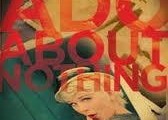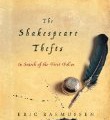2011 round up
December 31, 2011
It’s been a transitional year for The Bardathon. In August, I submitted my PhD at the University of Warwick (our kind host here), and two weeks later I began a new job at the University of Nottingham. These two changes have impacted significantly on my ability to get to the theatre this year, which means …
The Changeling (Shakespeare Institute Players) @ The Shakespeare Institute, Stratford–upon–Avon
November 27, 2011
Writing about web page http://www.shakespeareinstituteplayers.co.uk/ The poster for the new production by the Shakespeare Institute Players advertised “The Changeling by Thomas Middleton”. Beneath, in much smaller letters, came the almost apologetic “and William Rowley”. It’s an interesting reminder of the hierarchies that persist in the presentation of collaborative work, even when Shakespeare isn’t involved. It …
Macbeth @ The New Theatre, Nottingham
Just a quick note, for completeness’ sake, to say that I made it to the Nottingham New Theatre’s production of Macbeth last week. I don’t review shows that feature students who I do or will teach, but great to see the country’s only completely student-run theatre in action, and an interesting idea to set it …
Cardenio (Read Not Dead) @ Shakespeare’s Globe
November 22, 2011
We’ve been spoiled for productions and readings of versions of Cardenio/Double Falsehood over the last two years. We’ve had the RSC’s version, two at the Union Theatre, a full production in New York and readings at Nottingham and Warwick. Older but also younger than all of these is Gary Taylor’s "reconstruction" (as opposed to the …
Much Ado About Nothing (Mappa Mundi/Theatr Mwldan) @ Lakeside Arts Centre
November 10, 2011
Writing about web page http://www.mappa-mundi.org.uk/current-shows Expectations were set high by Welsh company Mappa Mundi’s self-description of its work: "gloriously irreverent, populist and accessible." A fun-loving Much Ado is always to be welcomed, and the setting – Britain between the wars, a culture where women have been taking on traditional men’s roles – offered an interesting …
Anonymous
November 6, 2011
Writing about web page http://www2.warwick.ac.uk/knowledge/culture/anonymous/ This is a reprint of my article "Much Ado about Anonymous", written for the University of Warwick Knowledge Centre and published here. Shakespeare scholars have been outraged about Roland Emmerich’s new film since filming first began. Anonymous tells the story of Edward de Vere, Earl of Oxford (Rhys Ifans), who …
A Midsummer Night’s Dream (Filter) @ Curve, Leicester
November 3, 2011
Writing about web page http://www.filtertheatre.com/page/Coming_Soon/ Filter’s A Midsummer Night’s Dream marks the company’s second foray into Shakespeare, following its sublime and irreverent Twelfth Night. The company specialise in a form of deconstructed theatre, treating performances as “gigs” where all the machinery of performance – instruments, sound boxes, stage management, cast – are on stage throughout, …
Hunting Folios: Eric Rasmussen’s “The Shakespeare Thefts”
October 30, 2011
Title: The Shakespeare Thefts: In Search of the First Folios Author: Eric Rasmussen ISBN: 0230109411 Rating: Not rated One of the relatively unknown problems in scholarly research is – what do you do with the stories? Inevitably, as we research, we turn up anecdotes, gossip, juicy titbits which are simply inappropriate to go in the …
Hamlet (Ketterer’s Men) @ The Shakespeare Institute, Stratford–upon–Avon
October 16, 2011
I’ve recently been reading Marvin Carlson’s The Haunted Stage (2001), which deals with a phenomenon in watching and making theatre that Carlson calls "ghosting". This is, effectively, the outer frame which shapes what an audience experiences in the process of attending a theatrical event, the collective resonances carried by actors, buildings, texts, scenery, everything that …
Edward II @ Manchester Royal Exchange
October 9, 2011
Writing about web page http://www.royalexchange.org.uk/event.aspx?id=435 It’s rare to see a history play specifically relocated in time. While it’s common to see a production that incorporates elements of costume and resonance drawn from across the ages, in order to suggest that the issues presented transcend their historical setting, few directors are prepared to fix a specific …




Recent Comments